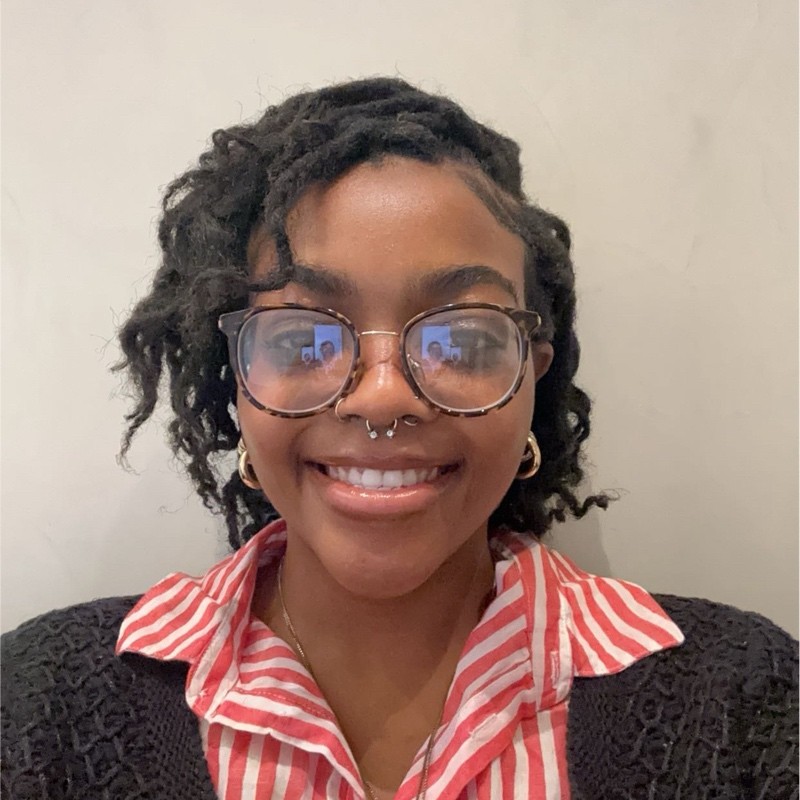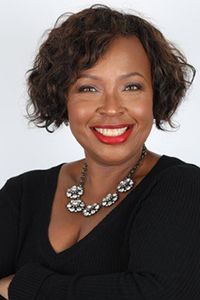Dr Charise Breeden-Balaam
Featured Food Systems Researcher
“Feeding the Mission: Dr Charise Breeden-Balaam On Food Insecurity, Purpose, and Power”
With a heart for service and a voice for the unheard, Dr. Charise Breeden-Balaam transforms research into advocacy and struggle into strategy. For Dr. Breeden-Balaam, the fight for food justice isn’t theoretical. It’s personal, purposeful, and rooted in the stories of students she refuses to let go unheard.
A committed scholar, social worker, and community voice, Dr. Breeden-Balaam brings the full force of her expertise, lived experience, and servant heart to the issue of food insecurity in college students. From her role as Field Director for the Social Work Program at Marymount University in Arlington, Virginia, to her roots in community-based activism and research, her mission is crystal clear: serve those most overlooked, and serve them well.
“I’m here on purpose, with purpose,” she says. “Everything I do is intentional. It’s rooted in service.” And that service centers on a population that’s too often left out of campus conversations: students who are hungry, students who are parenting, students who are working multiple jobs, couch-surfing, or simply trying to survive while trying to succeed.
Dr. Breeden-Balaam’s passion stems not just from her academic training, but from her identity as a woman of color in spaces where those like her are underrepresented. Her dissertation – a mixed-method study titled Assessing Food Insecurities at an Urban Institution – was both personal and deeply political. She surveyed and interviewed students from the Educational Opportunity Fund (EOF) Program at a community college, many of whom were first-generation college students, Pell Grant recipients, parents, and students of color. What she found was sobering.
“Food insecurity doesn’t discriminate,” she explains. “It wasn’t about race or gender – although students of color and parenting students were hit the hardest – but about structure. About policy. About how systems overlook real, human needs.”
One student’s story still echoes in Dr. Breeden-Balaam’s memory. A young mother who attended class from early morning until evening had only a honeybun and tea to sustain her all day. “She told me that was all she had,” Dr. Breeden-Balaam recalls. “She couldn’t afford food on campus, and she had to pick her daughter up right after class. That’s what keeps me in this work. I’m her voice. I’m the voice of all those students who didn’t know they were struggling because struggle was all they’d ever known.”
For Dr Breeden-Balaam, this is where Oscar Lewis’ theory of the culture of poverty, one of the theoretical backbones of her dissertation, intersects with real lives. Many of the students she interviewed, who were predominantly Black and Latino, came from communities where food insecurity was normalized. “They didn’t know what they didn’t know,” she says. “And that’s the heartbreak. They thought surviving off one meal a day was just what you did.”
Her framework also leaned on A.H. Maslow’s Hierarchy of Needs, a reminder that if students don’t have their basic needs met, how can they be expected to thrive academically?
But identifying the problem is just the beginning. Dr. Breeden-Balaam is equally focused on action. She pushes institutions to rethink how food pantries operate. “It’s not enough to have a food bank on campus,” she explains. “Is it open during evening classes? Is it stocked with culturally appropriate food? Can students carry their groceries on public transportation? These details matter.”
She also calls for structural change: SNAP applications that are accessible and visible; adjunct faculty who know what resources to recommend; and orientation programs that talk about food security as an essential element of student success. Still, she’s honest about the uphill battle. “I can’t say I’ve been successful with every stakeholder,” she admits. “But new voices and new research are shifting the conversation. We’re seeing more attention to how food insecurity intersects with homelessness, mental health, and retention.”
For Dr. Breeden-Balaam, civic engagement is key. She urges students, faculty, and institutions to get involved beyond the classroom from starting campus gardens to incorporating food justice into syllabi. Her work is grounded in social work principles, which call for a holistic view of student wellbeing.
“We have to stop treating hunger as a side issue,” she insists. “It’s not charity. It’s infrastructure. It’s access. It’s equity.”
And her inspiration? The legendary Dr. Dorothy Height, founder of the National Council of Negro Women (NCNW) and a distinguished member and past national president of the Delta Theta Sigma Sorority, whose quote resonates as a personal mission statement: “A Negro woman has the same kind of problems as other women, but she can’t take the same things for granted.”
“People see me as a Black woman before they see anything else,” Dr. Breeden-Balaam says. “That quote reminds me I can’t take anything for granted: not my education, not my degrees, not my platform. I have to use all of it to serve.”
The legacy she hopes to leave is simple, but profound: to be the voice for students who never got the chance to speak. For the young woman who never returned after winter break because of loan defaults. For the single parents packing honeybuns and tea. For every student whose hunger was invisible to professors, staff, and policy.
Through her teaching, advocacy, and research, Dr. Breeden-Balaam is changing how we understand food insecurity in higher education not just as a social issue, but as a systemic one that demands systemic solutions.
She says it best herself: “I’m a servant. That’s who I am. And every time I get to speak about this, every time I get to write, I’m fulfilling that purpose.”
Author: Akayla Green | June 3, 2025
* * *

Akayla Green served as a work-study student employee for NAFSN during in 2024-2025 while completing her undergraduate education in nutrition at Cornell University. She is currently a graduate student at New York University.

"We have to stop treating hunger as a side issue."
"It's not charity. It's infrastructure. It's access. It's equity."